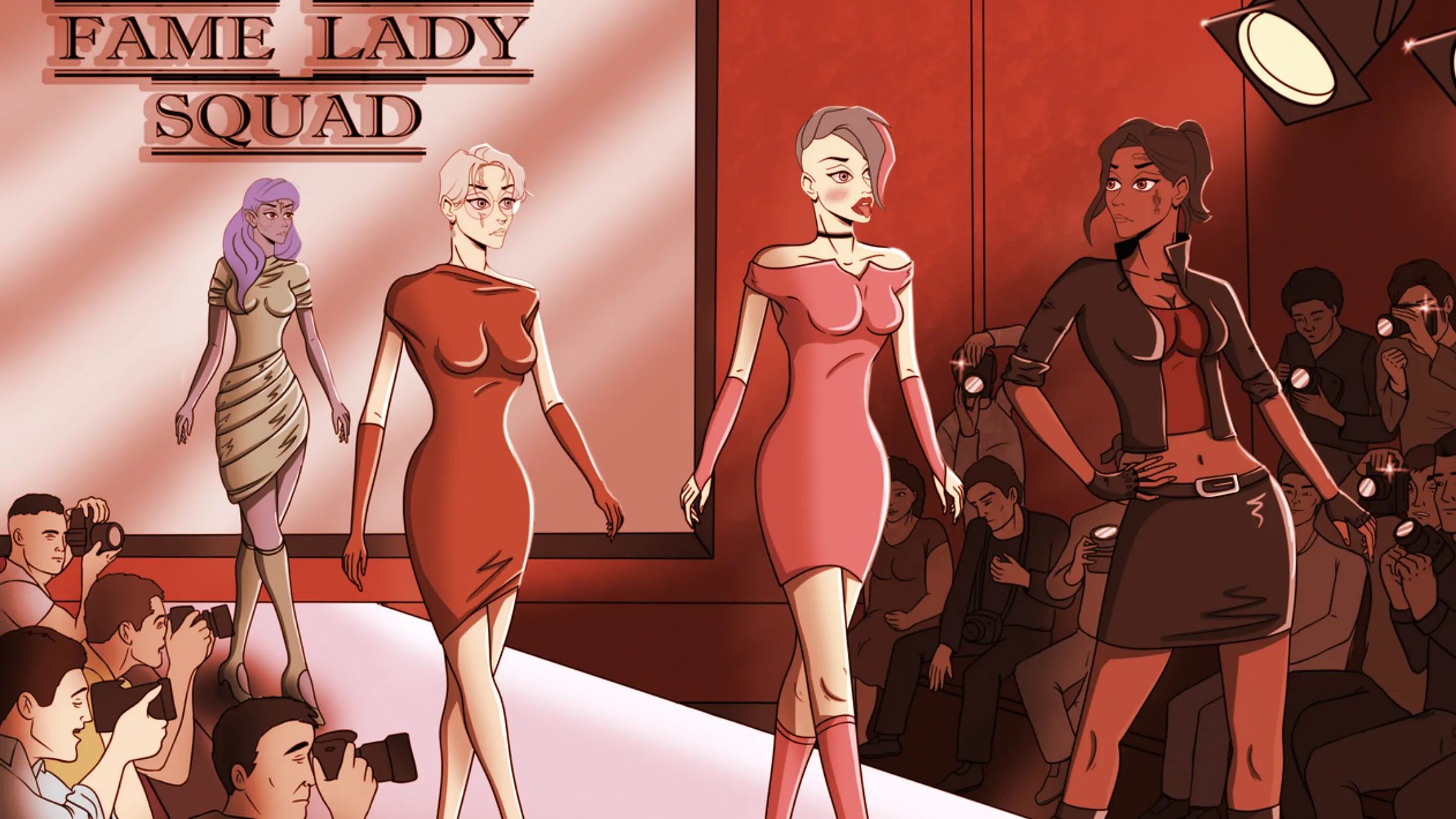In brief
- The developers of a popular NFT collectibles project called Fame Lady Squad admitted Tuesday that they are not women, as previously stated.
- Control of the project’s smart contract has been transferred to collectors in the FLS community.
As the market for NFT digital collectibles rapidly expands, the crypto industry’s pseudonymous nature can make it difficult to truly know where projects came from—and to trust who’s behind them. Many NFT collectors found out the hard way this week after the creators of a prominent women-centric project admitted that they lied about being women themselves.
Fame Lady Squad (FLS) is an Ethereum-based NFT collection that launched in July, claiming to be the “first female avatar project of all time,” per its Twitter profile. (For the uninitiated, an NFT is a special type of crypto token that can be used to demonstrate proof of ownership in digital items, and the market for them in the art and gaming worlds has exploded over the last year.)
The run of 8,888 individual Fame Lady Squad NFTs—purportedly created by a trio of women: Cindy, Kelda, and Andrea—was quickly minted and snatched up by collectors. An engaged community of fans sprung up around the project, and secondary market prices started to climb.
Even investor and social media influencer Gary Vaynerchuk—an NFT creator himself and new owner of a $3.7 million CryptoPunk NFT—espoused his love for Fame Lady Squad on Twitter, and the project earned a mention in a recent The New Yorker article. Amidst a recent uptick in NFT market trading volume, Fame Lady Squad seemed poised to continue rising in demand.

But in recent days, questions around the origins of the Fame Lady Squad project got louder. Twitter sleuths such as @FedorLinnik, @dearesthaley, and @NFT_Marty shared lengthy tweet threads that connected the dots between numerous recent NFT collectibles projects that appeared to come from the same source or share creators, including Cyber City Girls Club and Unicorn GG Club.
Prominent NFT collector Pranksy tweeted on Tuesday that they “failed to properly do my own research” when buying a Cyber City NFT, and suggested that it had been “made by a dev team that seems to be churning out a new project daily.”
Lesson Time, I failed to properly do my own research on a project yesterday - @CyberCityGirls, it turns out the project is made by a dev team that seems to be churning out a new project daily. Their next one is @UnicornGGClub, launching tomorrow. This info brings some thoughts... pic.twitter.com/N7CUPjCaqI
— Pranksy 📦 (@pranksyNFT) August 10, 2021
Pranksy added that the team had been “so brash” about promoting its next project, Unicorn GG Club, and wondered, “The questions here are what actually makes a [profile picture] project valuable? Is the dev team, the community, the time taken to create it?”
While those are questions for NFT collectors to ponder, the Twitter allegations increasingly pointed to false information provided by project developers. FedorLinnik, a developer behind other crypto projects, claimed that the evidence pointed to a group of Russian men who had been “minting new NFT projects like a conveyor” this past spring. They appeared to be behind Fame Lady Squad and the other new projects, as well.
Coming clean
Although Fame Lady Squad’s developers initially pushed back, citing “false statements” and claiming jealousy from rival NFT creators, they eventually dropped the charade following increased pressure from the community of collectors.
On Tuesday, developer Max Rand tweeted that he was one of the people behind the Fame Lady Squad and other projects, alongside a pair of collaborators: D Mefi, who briefly deleted his Twitter account, and another unnamed associate. “Sorry for the lie,” Rand tweeted. “I was too afraid to say this because of [a] lot [of] threats [on] my side, my stupidity and not understanding US market culture rules.”
The Fame Lady Squad’s official Twitter account went further with its explanation. “Let’s make it clear: Fame Lady Squad was created by a male team and we are very sorry for not saying this previously. But it doesn’t mean that it is a scam or a fraud,” the team tweeted. “We realised that there is an absolute lack of female projects in the space. And, because we are really fascinated by the power of women, we made this successful project.”
3/ Let’s make it clear: Fame Lady Squad was created by a male team and we are very sorry for not saying this previously. But it doesn’t mean that it is a scam or a fraud. We love NFT community and everything that is related to NFTs.
— Fame Lady Squad (@FameLadySquad) August 10, 2021
Meanwhile, the Cyber City Girls Club NFT project—which was originally credited to a pair of women developers of Asian heritage—explained its own deception in a tweet thread.
“Sorry to everyone who had bought into this project because it was created only by 2 Asian women,” the tweet thread began. “CCGC was created by a team of 6 people, only 2 of them were women. We will extend the roadmap and give more value to the holders. Have a good night!”
While the Unicorn GG Club NFT project didn’t have the same kind of problematic false representation issue at its core, the development team—which included Rand and D Mefi—opted to pause selling NFTs amidst the wider controversy. “I don’t trynna escape, just clear my mind,” tweeted co-creator “Trible Penguin,” via the official account. “We don’t do [fucking] rug pulls Memecoin but I’m really [afraid of] the bullying. I’m so sorry for the waiting.”
Accusations that the same developers are behind the Queenship NFT project—which features illustrations of Black women and was purportedly developed by Black women—have yet to be confirmed. The Fame Lady Squad Twitter denied the connection earlier this week, and Rand again denied his involvement today in a message to Decrypt. The Queenship website is now unavailable, and the project's last tweets from Monday railed against speculation regarding its origins.
Also, the team behind NFT Project Bulls On the Block—which some Twitter sleuths suggested was also associated with the same developers—denied any association with the FLS creators following a recent giveaway promotion.
A change of plans
It’s a mess, to say the least. Collectors who purchased NFTs from the Fame Lady Squad in particular feel duped, believing that they had bought into a project created by and targeted at an under-represented audience in the crypto space. Prices for the FLS NFTs sank in value at secondary marketplace OpenSea yesterday as collectors attempted to panic-sell their NFTs, fearing fading demand amidst a seemingly untenable path forward for the project.
and @FameLadySquad floor tanked 90% pic.twitter.com/Cs19WmjYhR
— artchick.eth 🔥👠 (@digitalartchick) August 10, 2021
For its part, the creators of Fame Lady Squad are attempting to make good in the form of money. Rand claimed that he and his collaborators will create a $100,000 grant fund to help support new NFT projects and artists, with Rand telling Decrypt that it will launch “soon” in “some days.” Unicorn GG added that it had donated 5 ETH (about $15,700) to Virunga National Park in Africa’s Democratic Republic of the Congo, providing an Etherscan link as proof.
Distressed at yesterday’s revelations and the swirling accusations in the days prior, some prominent Fame Lady Squad community members began pushing for a different kind of resolution, to try and reclaim a future for the project. Noted NFT collector Artchick detailed a potential way forward in a reply to Rand’s confession tweet on Tuesday.
“This is over for you,” Artchick told Rand. “If you want to do the right thing, I can broker a deal where you hand over control of your smart contract, and holders of FLS NFTs have a chance to recoup their losses and potentially thrive. Put the contract in the hands of the community.” (A smart contract is a bit of code that performs instructions and powers NFTs and decentralized apps, or dapps.)
That’s exactly what happened. After putting the decision up to a Twitter vote, the Fame Lady Squad developers transferred control of the NFT project’s smart contract to her. Artchick, in turn, transferred the contract to prominent FLS community member “Bored Becky,” who will run the project with other members.
The FLS team transferred their contract to me, and I've transferred to @iamboredbecky, who was elected by the community to steward
Next steps will be decided by her and the community (i have no say!)
original team no longer gets royalties from FLS, they are removed completely
— artchick.eth 🔥👠 (@digitalartchick) August 11, 2021
According to Artchick’s tweets, the developers will no longer profit from secondary sales. Decrypt reached out to both Artchick and Bored Becky about the transition, but did not hear back by press time. We will update this article if they respond.
Asked why his team gave up control of Fame Lady Squad, Rand told Decrypt simply, “Because the community wanted it,” adding a smiley face. Co-creator D Mefi responded to a tweet today defending his team’s actions, stating: “We didn’t fuck anyone. We created a project that benefited a lot of people and invited many new to the space. I know the reason why you are upset, we apologised for making this mistake and made good decisions to let FLS thrive again.”
Secondary market prices for the NFTs have surged back above the levels seen before the team’s confession, while collectors hailed the move and community members excitedly began discussing the new path forward. No similar plans have been unveiled for transferring control of the related NFT projects, however.
As of now, the Fame Lady Squad community looks to have secured a positive resolution after such unsettling revelations. However, it’s unclear whether the recently-launched Cyber City Girls Club project will recover after this week’s news: those NFTs are selling for about 0.01 ETH (about $32) on OpenSea, compared to a floor of 0.13 (about $420) for the FLS collectibles.
Pranksy’s aforementioned tweet pondered what makes NFT avatar collections valuable, and as this situation demonstrates, there can be a link between the stated origin story and the perceived value of artwork. It’s a subjective thing, but when that worth is generated based on fabrications—not helped at all by the pseudonymous nature of crypto—then investors can be duped and find themselves with NFTs that shed much of their expected value.
Not every story like this will have a happy ending.

